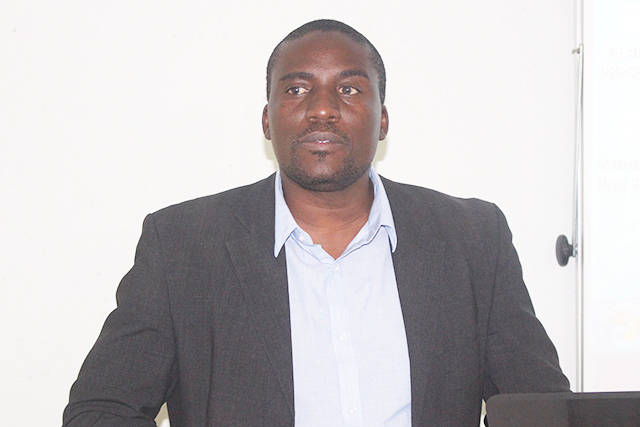Addis Ababa (Ethiopia) – Pan African University (PAU) Council president, Kenneth Matengu, said major reforms under his leadership have restored the university’s governance and strengthened its academic excellence and reputation.
During the 38th African Union (AU) summit, Matengu indicated that when he took over as president of the Pan African University Council in 2021, the institution was operating without a rector, vice-rectors or a functional governance structure.
He was re-elected as the president in July last year in Ghana and took the oath of office in November 2024, ahead of the 38th executive council meeting last week.
“We had an institution with great ambitions, but no leadership. A university without a rector and a proper governance system cannot function effectively. It was clear that urgent intervention was needed to put PAU on the right path,” Matengu said during his address to the AU summit.
He said within a short period of being elected, together with the outgoing Commissioner of Education, Science, Technology and Innovation Prof Mohammed Belhocine, he oversaw the appointment of PAU’s first-ever substantive rector Jean Kouliaditi, and vice-rector Bolanle Idowu Akeredolu-Ale.
He also ensured the university established a functional senate and council sub-committees, crucial structures for any world-class academic institution. PAU only offers Master’s and PhD programmes and admits Africa’s top students.
Matengu said the reforms have led to a surge in student applications, with over 11 500 applicants received in 2023, though only 445 students were admitted due to capacity and funding constraints. All students admitted at the PAU are fully- funded by the African Union.
He stressed the need for increased investment to accommodate more students, and reduce reliance on part-time lecturers from host institutions.
“The rising number of applications shows that PAU is now recognised as one of the top-choice universities for African students. But we must expand our capacity to ensure more young people benefit from top-quality education in novel and unique fields we offer,” he emphasised.
Determined to align PAU with global education trends, Matengu led a full review of its academic programmes, ensuring they are designed to meet the demands of the Fourth Industrial Revolution.
This process, supported by the African Development Bank and Germany’s GIZ, has strengthened PAU’s ability to train graduates in cutting-edge fields.
Beyond Africa, PAU has also positioned itself as a key partner in international education. In April 2024, Matengu signed the African Youth Mobility Programme in Brussels, an initiative under the European Union’s Global Gateway. The agreement will create new exchange opportunities for African students and researchers.
Despite these achievements, he acknowledged that PAU still faces major hurdles. The university does not have sufficient full-time academic staff, relying heavily on lecturers from host universities. This, he said, is a serious challenge, and affects progress and completion rates.
He called for more funding to expand PAU’s infrastructure, warning that without proper resources, the university will struggle to sustain its growth.
The summit also witnessed the election of Mahmoud Ali Youssouf, Djibouti’s long-serving foreign minister, as the new chairperson of the African Union Commission. Youssouf’s election is poised to influence the AU’s strategic direction, potentially positively impacting the investments needed to produce the skilled workforce of the future that higher education institutions like the PAU are tasked to do.
A central theme of the summit was the AU’s 2025 focus “Justice for Africans and People of African Descent Through Reparations.”
This theme underscores the continent’s commitment to addressing historical injustices, and aligns with PAU’s mission to foster an environment of academic excellence and equity.


